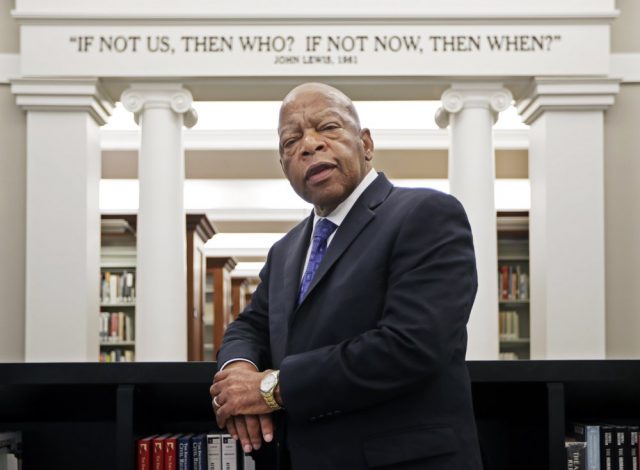
By Bill Cormier
Associated Press

ATLANTA (AP) — Congressman John Lewis of Georgia announced Sunday that he has stage IV pancreatic cancer, vowing he will keep serving and fight the disease with the tenacity with which he battled racial discrimination and other inequalities dating to the civil rights era.
Lewis, the youngest and last survivor of the Big Six civil rights activists in a group once led by the Rev. Martin Luther King Jr., said in a statement that the cancer was detected earlier this month during a routine medical visit.
The 79-year-old Democrat said subsequent tests confirmed the diagnosis of stage IV pancreatic cancer.
“I have been in some kind of fight — for freedom, equality, basic human rights — for nearly my entire life. I have never faced a fight quite like the one I have now,” Lewis added.
Lewis said he was “clear-eyed about the prognosis” even as doctors have told him that recent medical advances have made this type of cancer treatable in many cases. He added that “treatment options are no longer as debilitating as they once were, and that I have a fighting chance.″
Lewis added that he decided he will return to the nation’s capital in coming days to continue his work and begin his treatment plan.
He said medical treatment will be ongoing over the next several weeks but he did not elaborate on the specifics of the treatment or the cancer itself.
“I may miss a few votes during this period, but with God’s grace I will be back on the front lines soon,” he said in asking for prayers.
An Atlanta Democrat sometimes called the “conscience of the Congress,” Lewis is known for the prominent role he had in the 1960s civil rights struggles.
In that era, he led hundreds of protesters in the 1965 Bloody Sunday march across the Edmund Pettus Bridge in Selma, Alabama. Then 25, he was at the head of the march when he was knocked to the ground and beaten by police. His skull was fractured, and nationally televised images of the brutality forced the country’s attention on racial oppression in the South. Lewis also joined King and four other civil rights leaders in organizing the 1963 March on Washington. He spoke to the vast crowd just before King delivered his famed I Have a Dream speech.
Lewis turned to politics in 1981, when he was elected to the Atlanta City Council. He won a seat in Congress in 1986.



